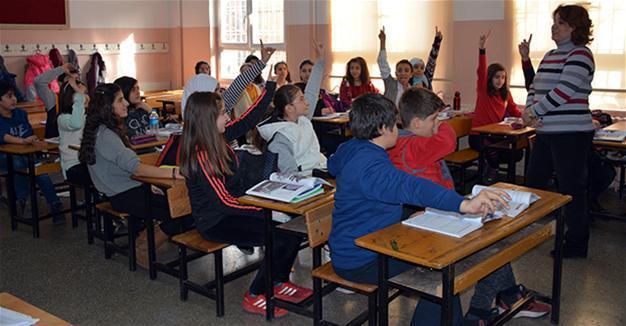Teachers in Turkey fail to answer questions in their own fields
Nuran Çakmakçı – ANTALYA

AA photo
Teachers in Turkey fail to answer questions in their own education fields, according to statistics obtained from the Education Ministry that reviewed their performances in 2016.Semih Aktekin, an associate professor and the ministry’s general manager for teacher training, has revealed the results of the Teachers Field Knowledge Test (ÖABT), taken as a part of the Public Personnel Selection Exam (KPSS), at a symposium on education in the southern province of Antalya.
According to Aktekin, most of the teachers have failed to pass their exams as many of them could not give correct answers to half of the questions. This shows that a significant number of prospective teachers are seen inadequate for their jobs.
The poorest performance was seen among high school mathematics teachers, who could only answer nine questions out of 50 correctly. The most successful ones were Turkish language teachers, who gave correct answers to 32 questions out of 50.
The results are expected to stir debates among authorities amid current reviews and examinations on universities’ faculties of education, science, and literature, where most of the teachers have graduated from. The programs in the faculties of education consist of 50 percent on field information skills, 30 percent of information on teaching, and 20 percent on general knowledge courses. These structures of percentages vary among different fields.
Most graduates from these faculties, and those who perform well in exams become eligible to be teachers in public schools.
It was revealed that teachers who are graduates from faculties of education are more successful than those from the other faculties, although they perform poorly too.
The questions in their exams are fully prepared by their lecturers and academics at their universities.
Educators have stressed that the undergraduate courses’ content and quality should be revised, noting that half of the 1,000,000 prospective teachers are not graduates of faculties of education, which shows that the courses of other faculties should be reviewed in scrutiny.
In order to become teachers, candidates are required to first take the KPSS General Knowledge and General Skills exam, an exam that allocates successful candidates into different public offices. Prospective teachers are then required to sit the Educational Sciences Exam, where all candidates are given the same questions regardless of their branch.
The last exam that candidates are required to take is ÖABT, with nearly 70 areas. However, the Student Selection and Placement Center (ÖSYM), an authority responsible for most education matters in the country, prepares questions in the most demanded fields. The exam consists of a total of 17 fields and the candidates are able to answer questions more relevant to their branches.
Some 40 out of the 50 questions are branch-specific, and each candidate has to answer the remaining ten questions in the area of “branch education.”
The prospective teachers then need to take an oral exam if they reach a certain level in the KPSS exam, and if successful they are then allocated to their jobs.
















